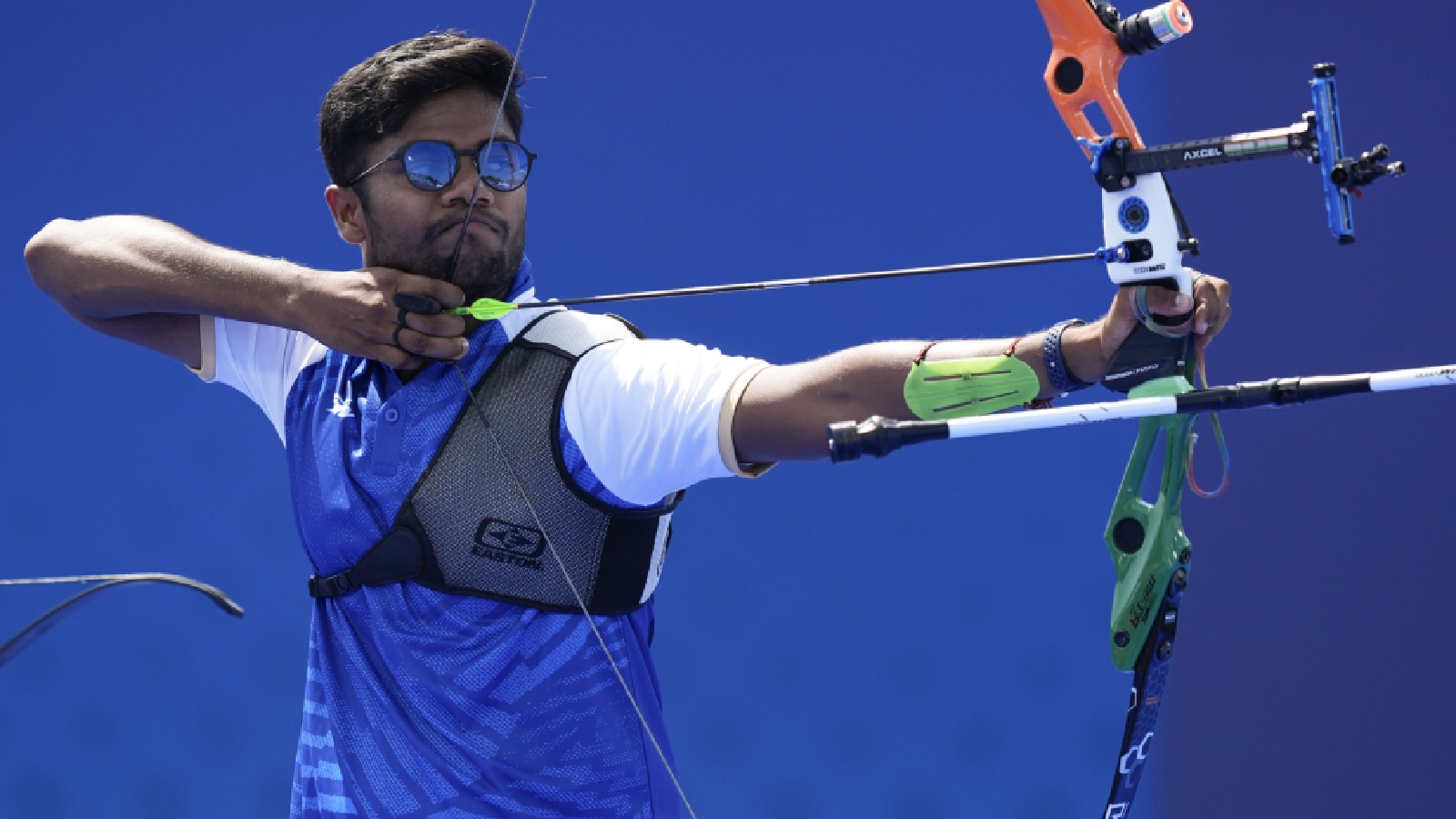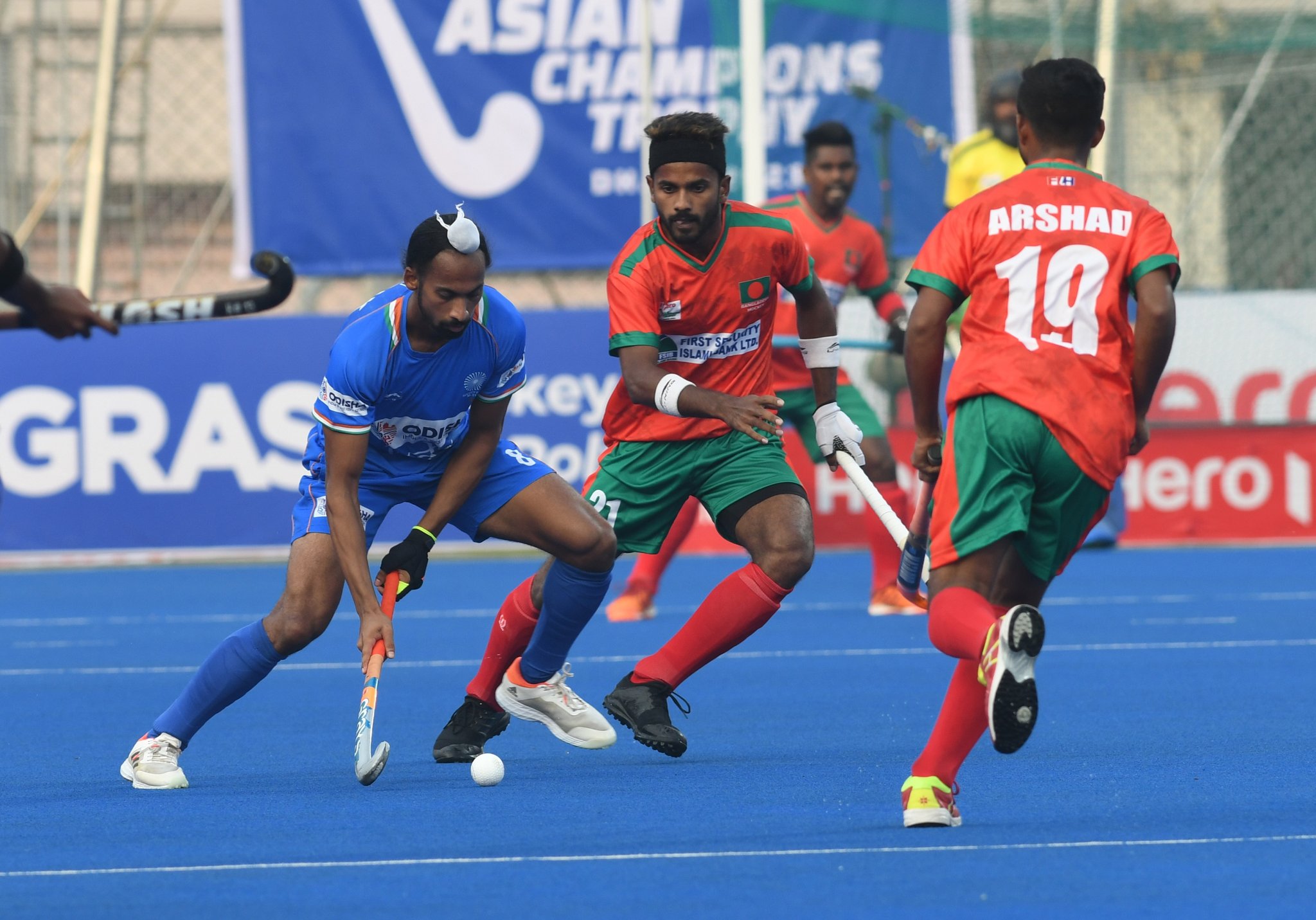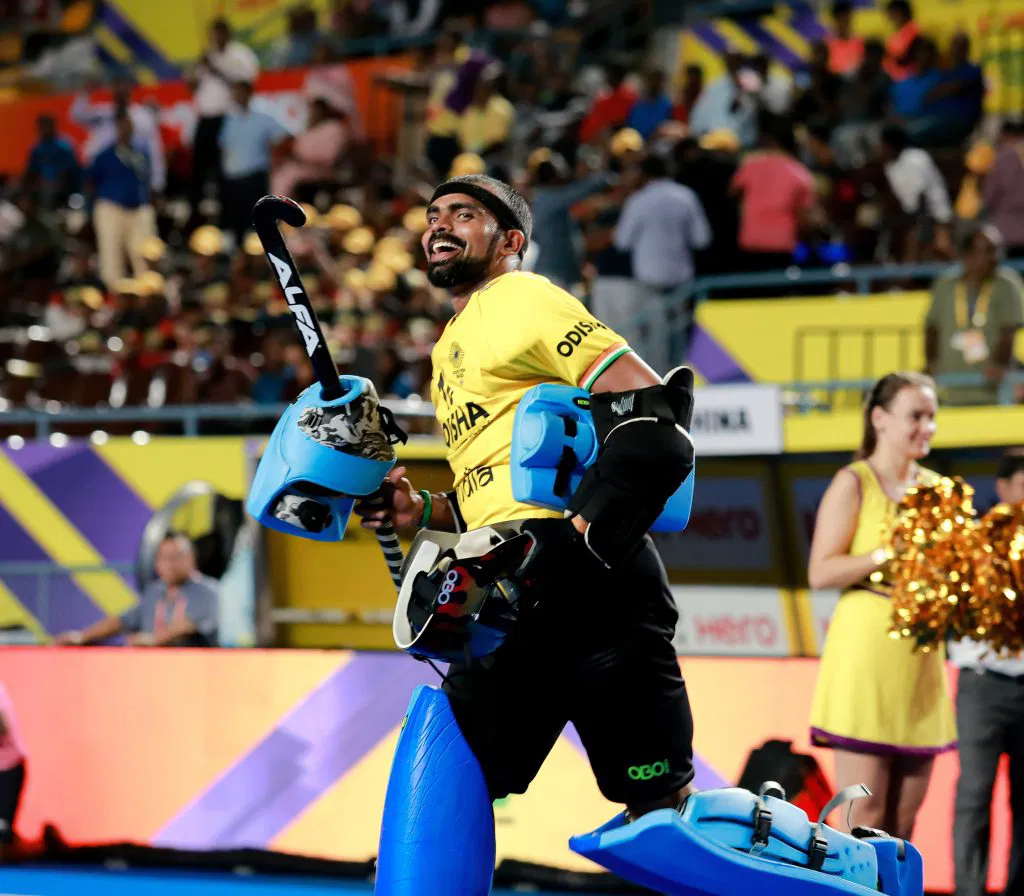We have three years before the 2028 Summer Olympics in Los Angeles. So, just making firm predictions who will win what is tough. So, let's just try to make a prediction of who to watch in LA 2028 from India.
LA 2028 is going to see great Olympians continue their greatness, young stars take their next steps, and entire sports leap into the spotlight.
India has already started its preparation for the Los Angeles Olympics in 2028. India is seeing a great performance in LA, where everyone is expecting to win more than 10 medals. The country feels optimistic with a promising lineup mixed with veterans and young guns that these young men shall not only live up but also exceed expectations when they bring laurels home to India in the LA 2028.
We have three years before the 2028 Summer Olympics in Los Angeles. So, just making firm predictions who will win what is tough. So, let's just try to make a prediction of who to watch in LA 2028 from India.
Also Read: 10 Indian Women Who Made Olympic History
Anahat Singh

Well, this might sound wild. But why make only the safe predictions? India expects Anahat Singh to bag the first Olympic squash medal.
Anahat Singh had already won a medal at the Asian Games at an age of fifteen. She has also quickly emerged as the best female squash player in India. What a time to come out of the shadows for a sport that will have its greatest hour ever when squash is introduced in the Olympic programme in Los Angeles.
Nothing wrong with Anahat being among the world’s best juniors. Each time she competes at a senior event, she is better. Forget Joshna Chinappa, Dipika Pallikal, and Saurav Ghosal, those legends from India might be too old to pick up a racquet and compete in Los Angeles, but Anahat can win for them all.
Anmol Kharb

It is not an easy job to emulate PV Sindhu and Saina Nehwal. It’s also not an easy assignment to follow a huge success at such a young age with consistent performances later. Teenager Anmol Kharb found that out after she was India’s star at the Badminton Asia Team Championships in early 2024. In high-stakes clashes, she outsmarted players with higher rankings.
Till Tokyo, India had won three consecutive medals in women’s singles badminton; however, that run was stopped in Paris. Kharb possesses tremendous skill and as such, like she showed early this year, has the right attitude. All now remains is to conjure consistency. Anmol can prove to be the third woman that wins her a medal in badminton for India.
Dhiraj Bommadevara

The 22-year-old Bullseye archer from Vijayawada, Andhra Pradesh, was a treat to behold at the Olympics in Paris. He finished the men’s individual archery ranking round with a total of 681 out of 720. In the team event, his superb shooting carried India to qualify for the quarterfinals. Turkey edged past Bommadevara, Tarundeep Rai, and Pravin Jadhav 6-2 in the quarters of the men’s team event.
Bommadevara made Olympic history as the first Indian archer to reach the mixed team semifinals, along with Ankita Bhakat. The duo finally finished fourth, and silver or bronze medals proved just out of reach. So, with age being his side, he is likely to put up a show at the next Olympics to bring a long due medal home. However, this time we hope he gives us a medal to celebrate at the 2028 Olympics.
Lakshya Sen

When Viktor Axelsen says it, how can anyone disagree? The two-time Olympic champion earmarked Lakshya Sen as one of the big contenders for the gold medal in LA after their semifinal in Paris 2024, which Axelsen won in straight games despite being given a scare in both games.
Lakshya is only 23 and has plenty of badminton ahead of him. Like in the Thomas Cup in 2022, and then the Asian Games last year before these Olympics, he has shown time and again that he has the ability to raise his level at big tournaments as well.
Bhajan Kaur

The upcoming star of Indian Archery, Bhajan Kaur, who in her tender age of nineteen only, marked her presence in the archery tournament. She ranked 22nd in the women’s individual ranking round with a score of 659. In the Round of 16, she faced Diananda Choirunisa of Indonesia, and her exciting match went into a shoot-off.
Her Olympic journey ended there in the shoot-off; however, she did leave behind a mark as a promising name in Indian archery despite her heroic effort to come back from a facile victory from behind and force a tie. She was known for accuracy. So far, she has been going very well and she was confident of winning at international levels. Her rigorous schedule of training coupled with her recent wins have increased the expectation of a medal in the 2028 Olympics.
Also Read: Most medals by an Indian in a single Olympics
Reetika Hooda

Haryana’s girl, Reetika represented her state in the women’s 57kg freestyle category. She went all gung-ho. On August 10, she was knocked out of the Paris Olympics with a close loss to the top-seeded Aiperi Medet Kyzy of Kyrgyzstan at the women’s 76kg freestyle quarterfinals. On points, the match remained 1-1, but Medet Kyzy won due to the final technical point rule.
Hooda, who has emerged as one of the best athletes in Indian athletics, is getting enough attention these days. With improved personal bests and perfected technique, experts feel she would easily be at stake for a medal at the 2028 Los Angeles Olympics. Reetika’s journey inspires many young athletes, and her potential success in 2028 can well be a historic moment for Indian sports.
Indian Men's Hockey Team

There will be changes to the Indian men's hockey team between Paris and the LA Olympics. One thing that won't change is its captain. It's both scary (for the rest of the world) and reassuring (for Indians) to think that Harmanpreet Singh is still only 28 years old.
He's coach Craig Fulton's general now. He's just inspired his team to a bronze medal. The youngsters coming through are showing so much promise. Fulton will oversee those changes, but will still build his side around his captain. Much like PR Sreejesh in Paris, there is a chance that LA sees the team wanting to play for Harmanpreet.
Of course, as Graham Reid found out after Tokyo, there's plenty of potential to fall flat on your face, but if Fulton has his way for the next four years, that first gold medal since Moscow 1980 certainly can't be far away.
Indian Men's Cricket Team

Cricket is another sport which might bring a medal for the Indian contingent. Six teams will participate in the event to be held in Los Angeles. As hosts, the USA might receive an automatic qualification spot. Further, England will be participating under the Great Britain flag while the Islands which comprise the West Indies will compete as individual countries, which might weaken them.
Indian Men's Cricket Team has been in brilliant form in the white-ball ICC tournaments in the last two years. The team first clinched the T20 World Cup in 2024 and also won the Champions Trophy 2025. Considering the kind of India’s form and the talent pool they have, the Men in Blue are strong medal contenders and that too for a gold.
Also Read: Cricket may be shifted from Los Angeles at the 2028 Olympics, to attract Indian fans
Jyothi Surekha Vennam

Among the star athletes to expect sometime in LA is Jyothi Surekha Vennam, one of India's most decorated archers. Eight world championship medals, India’s first world title in Compound archery, and 20 World Cup medals, including ten gold medals, are some prestigious accolades proudly owned by her.
Her glorious moment was in Hangzhou, where she created history by winning gold in all three events—individual, women's team, and mixed team compound. In addition to it, she and Ojas Pravin Deotale had won mixed team gold in the Archery World Cup Stage 1 in Antalya (April 2023), missing world record status narrowly with a score of 159-154 against Chinese Taipei.

































